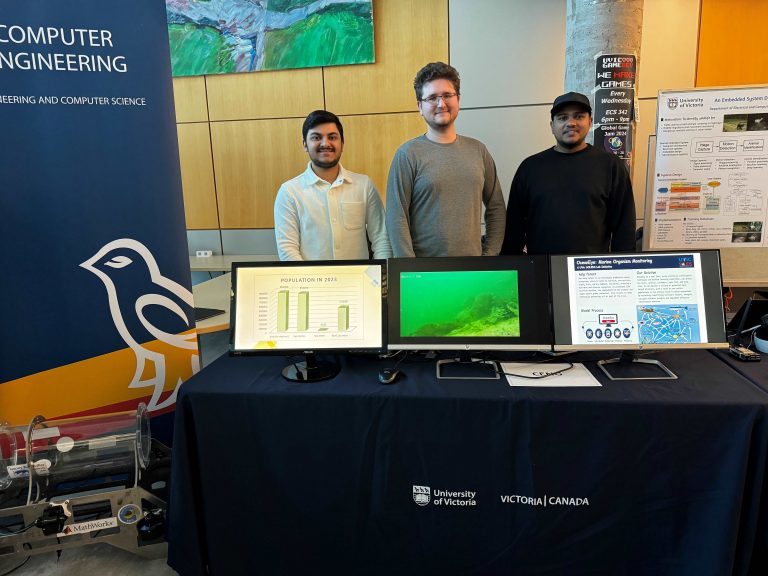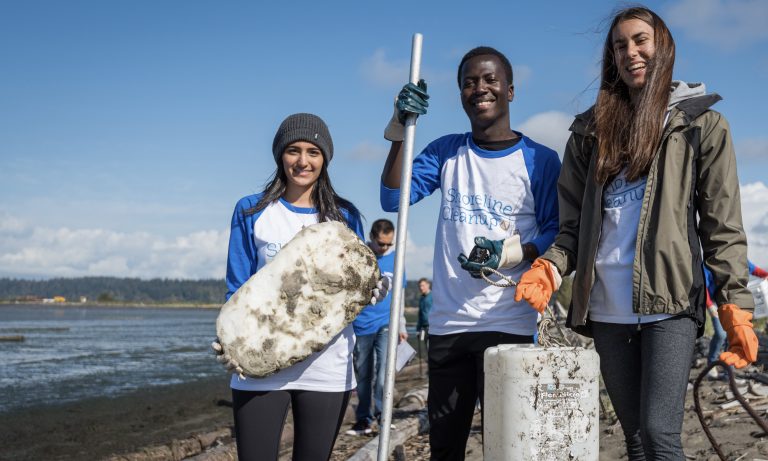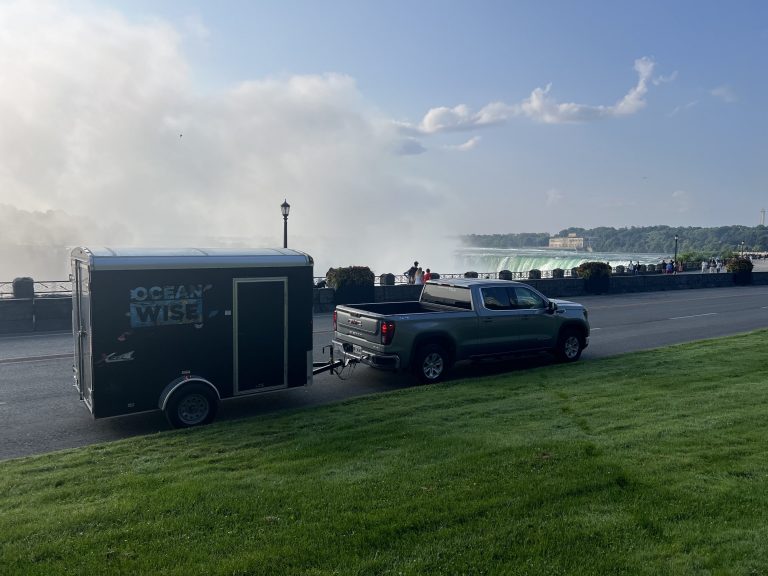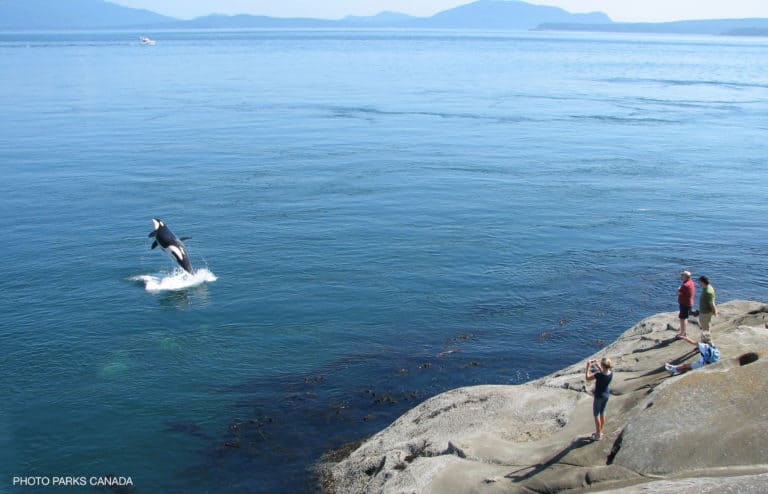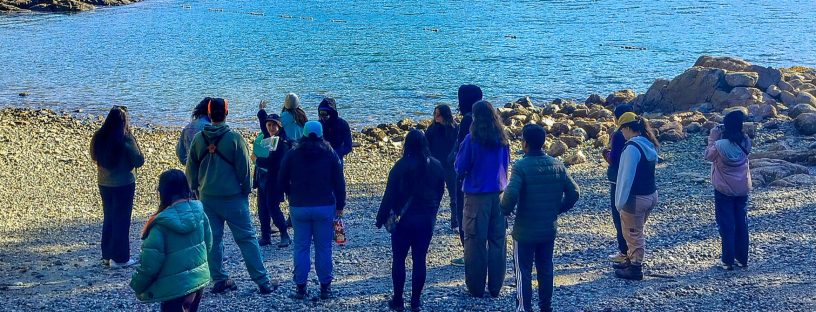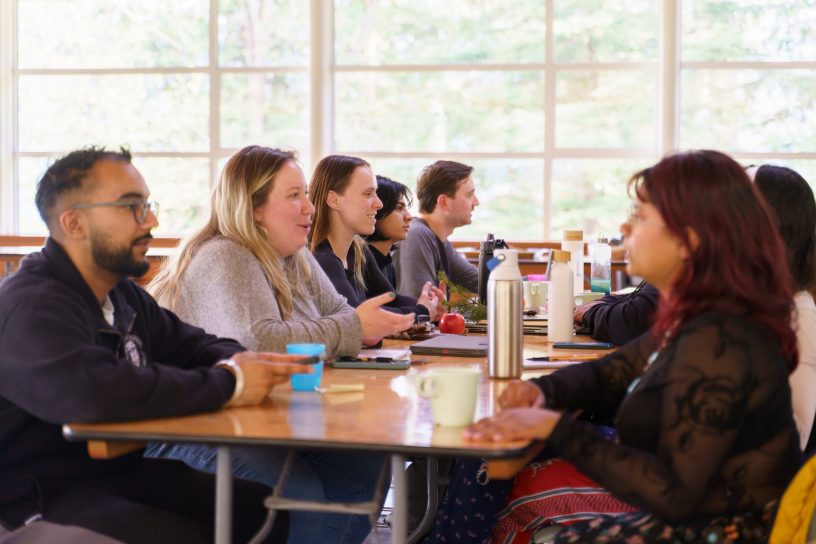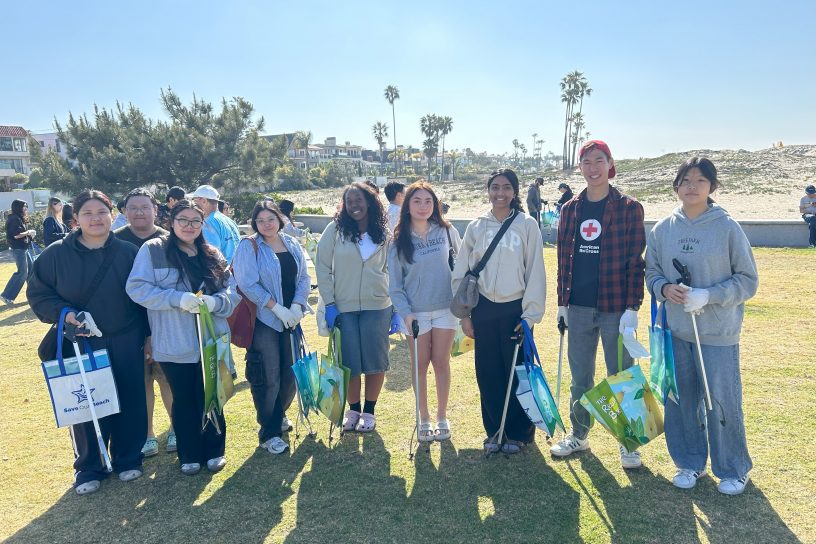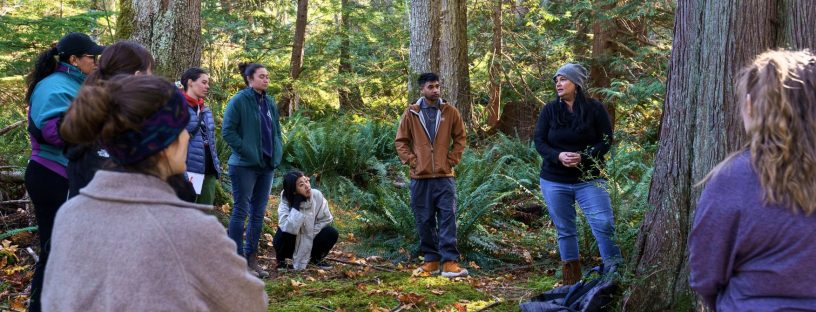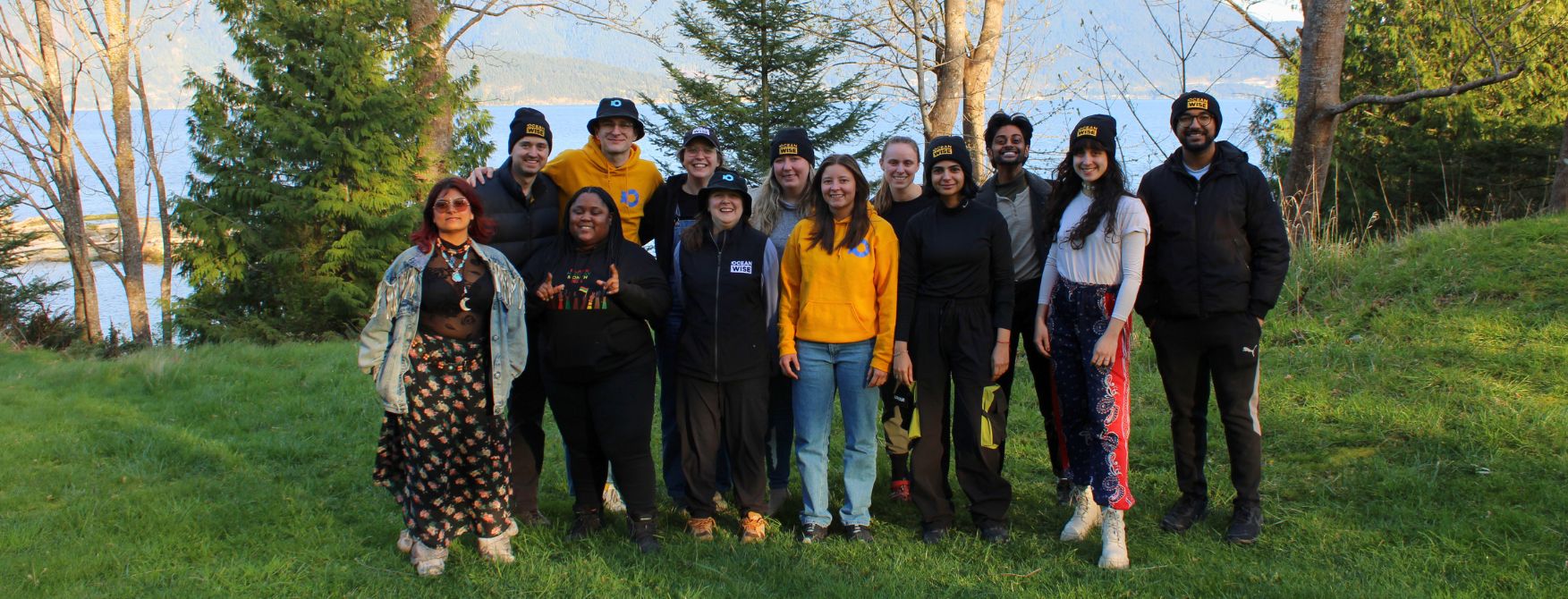
International Youth Day: Inviting Diversity to the Table
Amy Charles is a Métis woman from Red Deer, Alberta. She works as the Indigenous Knowledge Specialist at Ocean Wise and recently had the privilege of speaking at the Canadian Water Resources Association’s National Conference, where the theme was “Living Between Waters: Connecting Water & Resilience.” The theme resonated with Amy not only because of her personal experience but also because of the work she does every day alongside youth across the country.
When I was asked to consider what International Youth Day means to me and my work, I immediately thought about the importance of creating space for Indigenous youth to lead, co-creating solutions from the outset, and recognizing Indigenous knowledge as not just complementary to science, but complete in its own right. Building and fostering good relationships means also upholding Indigenous rights and worldviews, which isn’t optional; it is essential.
In my role, I help bridge Western and Indigenous Knowledge worldviews across our Youth and Education programs. Our goal is not just to “include” Indigenous perspectives but to reshape the systems that have historically excluded them. By incorporating a variety of perspectives, especially those often marginalized in decision-making, we can create more resilient and innovative solutions to the complex realities we face. As a member of the Youth and Education team at Ocean Wise and a young person myself, I have been continuously inspired by youth who are actively investing in resilience of their local waterways.
Ocean Wise Youth Programs
Over the past seven years, Ocean Wise has supported youth across the country through programs where we offer coaching, funding, and a community of peers united by action. Approximately 60–70% of participants identify as coming from underrepresented communities. These young leaders are not only preparing for the future, they are actively shaping the present. They are the changemakers of today. These programs reflect our belief that youth-led solutions are not only possible, but essential. View our youth programs here.
What Does Sustainability Really Mean
Too often, sustainability is framed around emissions, waste, and habitat loss. But sustainability also includes identity, language, belonging, and relationships. It’s about whether people (especially young people) feel safe, valued, and heard.
To me, living between waters also means existing between science and storytelling, community and institution, and expectation and truth. These in-between spaces might sometimes feel uncomfortable, but these spaces are where diversity thrives and resilience grows. Just as the most resilient ecosystems are biodiverse, our communities and knowledge systems grow stronger when they are inclusive and interconnected.
We see this every day in our youth programs. Their projects ripple outward, impacting public perceptions, collecting data that influences national policy, and making community connections. At a recent Eco-Action Accelerator retreat, youth participants shared what makes Ocean Wise meaningful to them: that we are transparent and not performative, that we support youth-led solutions, and that we show up, even when things get hard. The visions of these young leaders were complex and optimistic, showing that strength comes from diverse thoughts and experiences.
The Ripple Effect: Building Relationships and Solutions
Water doesn’t divide us—it connects us. Our ocean doesn’t begin at the shoreline; it originates from rain, snowpacks, and rivers that traverse Treaty lands, farms, cities, industries, and natural areas. This flow reminds us that ocean conservation begins with stewardship, and stewardship begins with relationships.
At Ocean Wise, we are committed to building those relationships. We are committed to learning and growing alongside youth. We are building trust, challenging norms, and supporting a culture rooted in listening, humility, and care, because resilience isn’t something we own, it’s something we build together. From Shoreline Cleanups to kelp research to our youth programs, we’re redefining ocean conservation by focusing on long-term relationships, deeper partnerships, and listening more effectively. Because conservation is not only about the environment, it’s about the people who care for it. True sustainability must also protect the cultures and Traditional Knowledge that have stewarded these ecosystems for generations. The wisdom and practices of Indigenous communities are vital to the health and resilience of the ecosystems we aim to protect.
Posted July 31, 2025 by Cayley Elcombe
